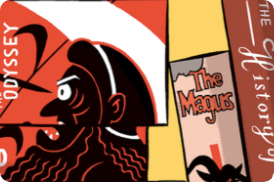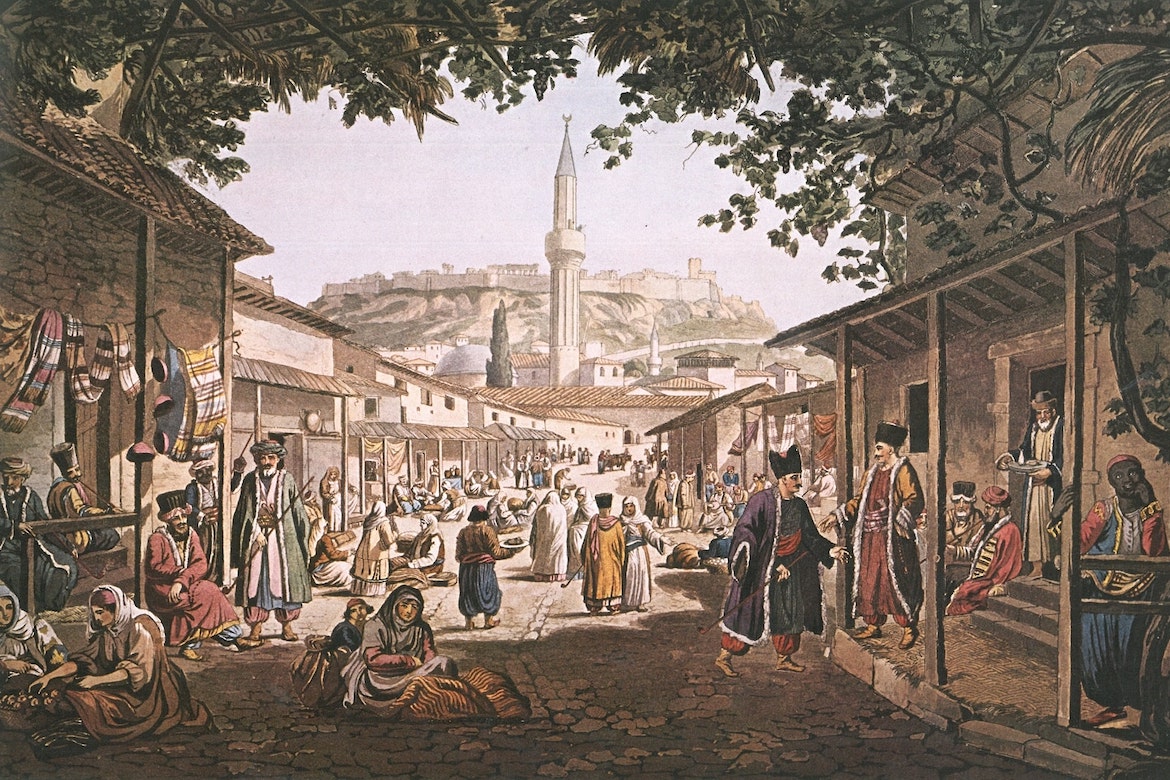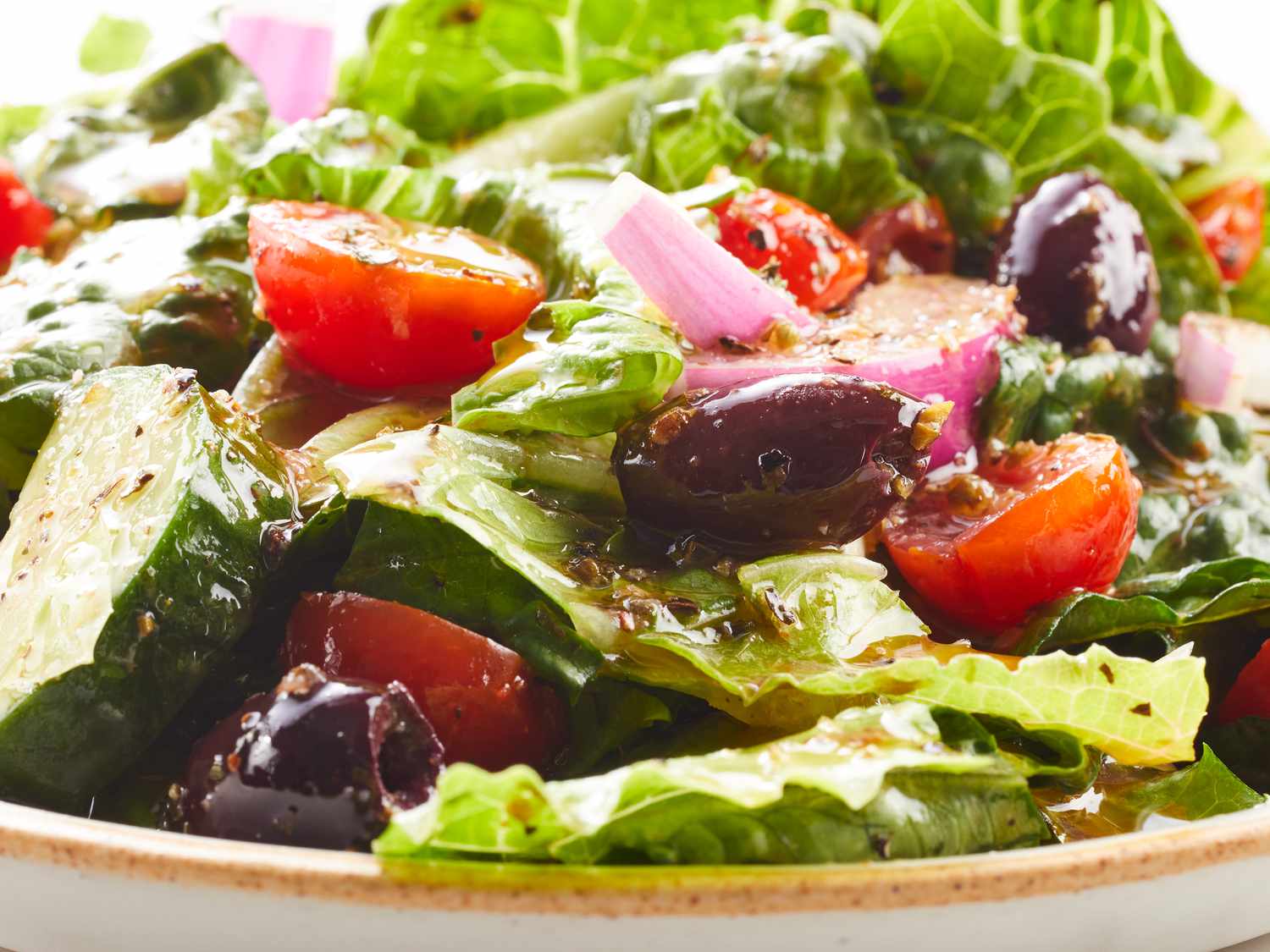Of course the Greek language has given its share of tens of thousands of words to English and other languages. Fields like medicine and mathematics and so many more practically owe their entire lexicons to Greek.
But did you know that a lot of the contemporary Greek language also has its share of foreign influence, including words Greek speakers use regularly from French, Italian and other European languages.
And of course, there is the influence of 400 years of Ottoman Turkish occupation. The occupiers may not have broken the Greek people’s faith, heritage and traditions over four centuries, but they did creep numerous words into the everyday Greek language and you might be surprised to see some of them used in quintessentially Greek expressions, music and everyday life.
That white, thick dairy product we’re so proud of. Yes, Greek yogurt. Well, if you want to be a purist, stop calling it γιαούρτι (which originates from the Turkish word yoğurt) and call it οξύγαλα. It’s what ancients called it and variations of this word actually survive in the Pontian Greek dialect today. Pontians don’t call yogurt γιαούρτι they call it ξύγαλα.
Since we’re starting in the kitchen, you should know that the name of your favorite summer melon καρπούζι originates from the Turkish language, too. If you prefer, you can refer to it by its real Greek name υδροπέπων.
If you put a καπάκι (lid) on that tupperware container with παντζάρια in it, you might want to reconsider using the word σκέπασμα or κάλυμμα instead of the Turkish καπάκι and instead of παντζάρι, call your beets κοκκινογούλι.
And if you’re cooking μακαρόνια με κιμά know that you’re using not only a Turkish root word (κιμά) but also the Italian μακαρόνι. By the way— the only way to say ground meat in exclusively Greek would be to use the words ψιλοκομμένο κρέας which means finely-chopped meat.
Oh and that μεζέ meal you’re preparing with small plates of goodies, call them ορεκτικά instead and if you like to cook with parsley (μαϊντανός) the real Greek word for it is πετροσέλινο.
A lot of words describing moods, feelings and the way we feel also stem from Turkish words. Surprisingly, some very Greek concepts like γλέντι and κέφι are both rooted in Turkish. To remain authentic, you might want to use διασκέδαση and ευδιαθεσία instead, respectively.
Someone causing a lot of νταβαντούρι (problems, conflicts) may lead to a καβγάς (fight)… Both are Turkish words. Instead if you want to be a Greek purist, say σύγχυση and φιλονικία.
A lot of other everyday household words too, come from Turkish, but have Greek words that although uncommon to many, mean almost the exact same thing:
Bucket – Κουβάς (κάδος or αγγείο)
Piggy bank – Κουμπαράς (δοχείο χρημάτων)
Plastic cover – Μουσαμάς (κερωμένο-αδιάβροχο ύφασμα)
Paint – Μπογιά (βαφή-χρώμα)
Painter – Μπογιατζής (ελαιοχρωματιστής)
Ceiling – Ταβάνι (οροφή)
Ashtray – Τασάκι (σταχτοδοχείο)
Baking pan – Ταψί (μαγειρικό σκεύος)
Can – Τενεκές (δοχείο)
Fireplace – Τζάκι (παραγώνι)
Glass – Τζάμι (υαλοπίνακας-γυαλί)
Sofa (that turns into a bed) – Ντιβάνι (κρεβάτι)
Rug – Χαλί (τάπητας)
And many words that comprise some quintessentially Greek experiences also come directly from the Turkish language and may surprise you.
There’s an expression that yοu tell someone when you haven’t seen them in a long time… χρόνια και ζαμάνια είχα να σε δω which loosely translates to “it’s been ages that I’ve seen you.” The word ζαμάνια which means a long time period (μεγάλο χρονικό διάστημα) is a Turkish word.
And those beautiful fishing boats that are in every quaint Greek island port, the Καΐκι… Yep. That word too. Call it a βάρκα instead. And the annual August winds that pop up out of nowhere in the Aegean islands, the cool μελτέμι breeze… Call it άνεμος or wind, instead.
And those macho men, the λεβέντης… Yes, that word too. Call him ανδρείος or ευσταλής instead.
The list is somewhat endless. Here are some final, everyday words that you might find surprising to have Turkish roots. First, the Greek word, followed by the English translation, and then in parenthesis the optional Greek word you can use instead.
Μαγιά yeast (προζύμη-ζυθοζύμη)
Μανάβης fruit and vegetable grocer (οπωροπώλης)
Μουσαφίρης guest (φιλοξενούμενος-επισκέπτης)
Μπαγιάτικο stale (μη νωπό)
Μπακάλης grocer (παντοπώλης)
Μπαμπάς daddy (πατέρας)
Μπόρα sudden storm (καταιγίδα)
Ντέρτι suffering (καημός)
Σιντριβάνι water fountain (πίδακας)
Σόι family (καταγωγή-γένος)
Τεμπέλης lazy bum (οκνηρός-ακαμάτης)
Τζάμπα free (δωρεάν)
Τσάντα bag or purse (δερμάτινη θήκη)
Τσάρκα a fun journey (επιδρομή-περιπλάνηση)
Τσέπη pocket (θυλάκιο)
Τσιγκούνης cheap person (φιλάργυρος)
Τσιμπούκι smoking pipe (καπνοσύριγγα)
Τσογλάνι young male trouble-maker (νέος)
Φαράσι dustpan (φτυάρι-σκουπιδολόγος)
Φιστίκι peanut (πιστάκη)
Φιτίλι wick (θρυαλλίδα)
Φουκαράς poor guy (κακομοίρης-άθλιος)
Φουντούκι hazelnut (λεπτοκάρυο-λεφτόκαρο)
Χαρτζιλίκι pocket money (μικρό χρηματικό ποσό)
Χασάπικο butcher (κρεοπωλείο)
Χατίρι favor (χάρη)
















